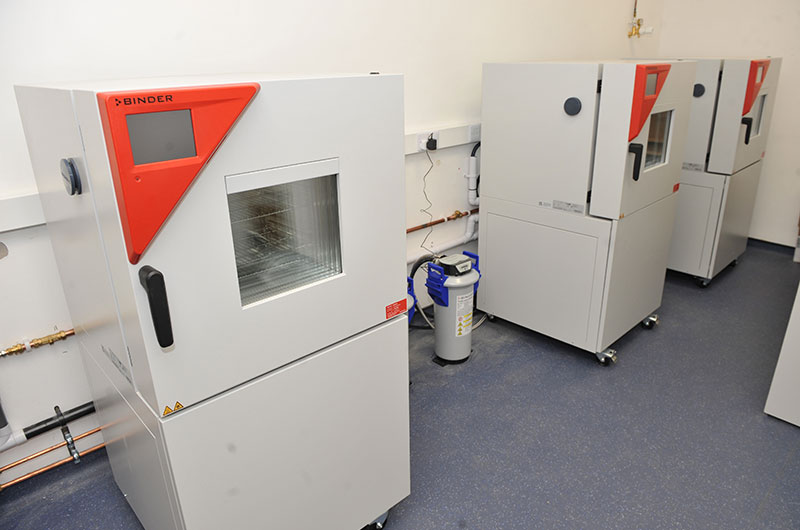{{serverconnectlatestnews.data.showlatestnews.data[0].news_title}}
{{serverconnectlatestnews.data.showlatestnews.data[0].news_date.formatDate("d MMM yyyy")}}
{{serverconnectlatestnews.data.showlatestnews.data[0].news_teaser}}


Artificial ageing chambers, also known as accelerated ageing chambers, provide a controlled environment designed to simulate the natural ageing process of materials at an accelerated rate.
By doing so the effects of ageing over a shorter period of time can be assessed, which helps in predicting the lifespan, reliability, and potential failures of materials.
To fully understand the ageing characteristics of a material can take years of experimentation and be expensive.
Artificial ageing chambers enable a better understanding of how materials age by exaggerating the key parameters effecting the ageing. Analysis can be done in weeks or months rather than years.
Various types of materials can be tested including:
Artificial ageing chambers provide several advantages, including time and cost savings compared to real-time ageing tests. They enable researchers to quickly evaluate the long-term performance of products or materials, identify potential weaknesses or defects, optimise designs, and make informed decisions about product lifecycles.
Enquire about services, facilities, and expertise.